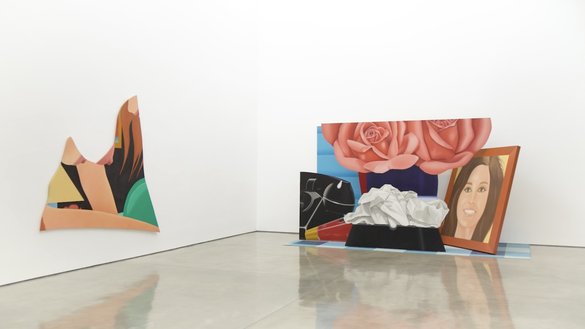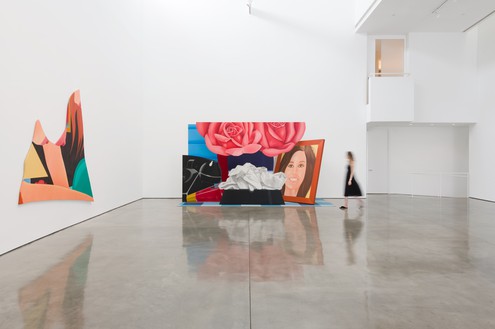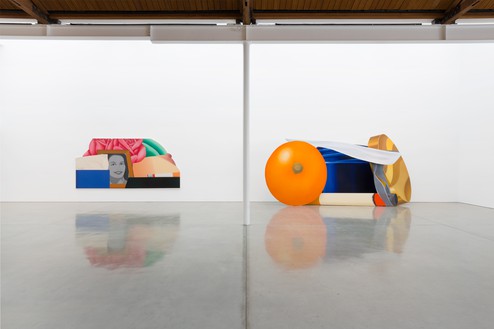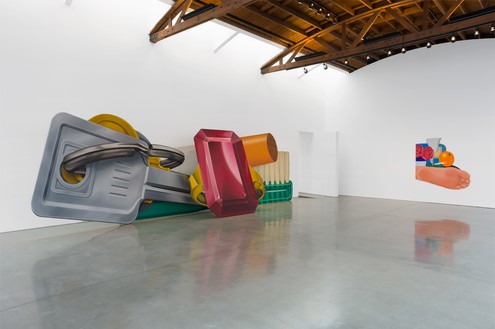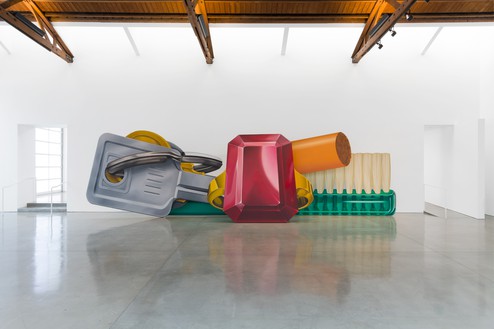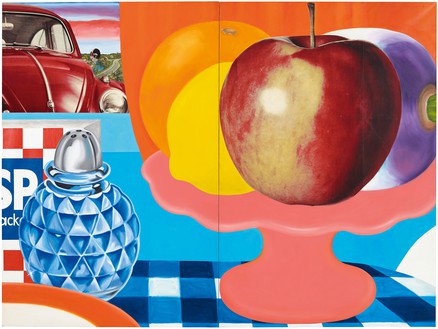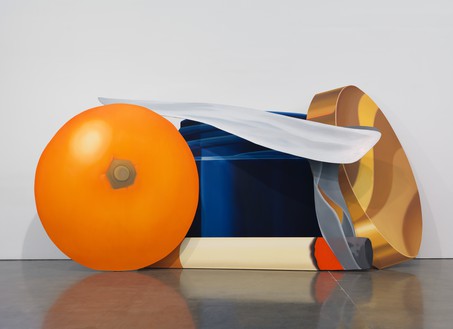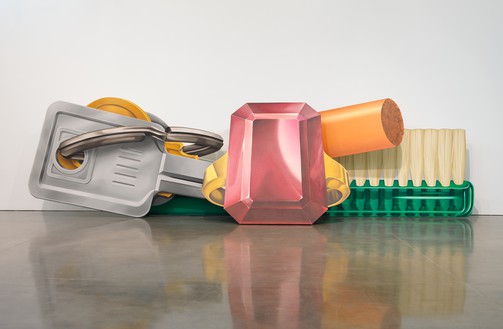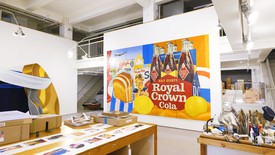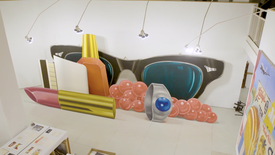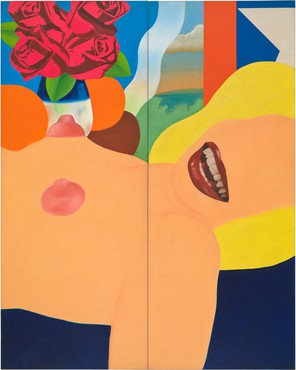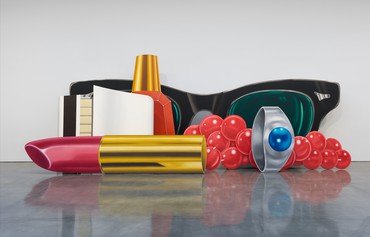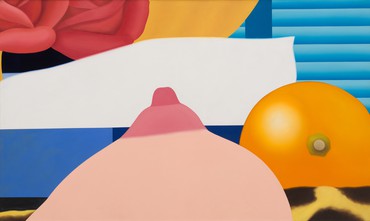About
I used what was around me, so my culture was what I used. But I didn’t use it for cultural reasons—it was not a cultural comment.
—Slim Stealingworth (a pseudonym of Tom Wesselmann)
Gagosian is pleased to present Wesselmann: 1963–1983, an exhibition of seven monumental paintings made by Tom Wesselmann over a span of two decades. This is the first time this group of works has been shown on the West Coast.
During the 1950s, when Wesselmann was a student at Cooper Union in New York, his drawings often took the form of hybrid collages that incorporated sketches and scraps of wallpaper and advertisements that he found in the New York City subway. As experimentation evolved into technique, his early assemblage paintings, which included functional objects and gadgets, gave way to shaped canvas paintings in which objects are arranged in space as tableaux. Diverging from the Abstract Expressionist principles that reigned in 1950s New York, Wesselmann played an integral role in defining New York Pop art, while retaining art historical precedents, including a notable inheritance from Henri Matisse.
In 1962 Wesselmann began accumulating printed commercial billboard posters, which he then transformed and recontextualized with his own brushstrokes and anomalous configurations. Still Life #29 (1963), twelve feet in width, depicts ordinary objects arranged on a kitchen table, including a fruit bowl in which a photographic apple is collaged over a lemon and orange that are flatly rendered in oil paint. Beyond the objects, common to any American kitchen, a Volkswagen traverses a road as if through the window of Wesselmann’s chimerical kitchen interior.
#Wesselmann1963to1983
Artist
Download

The Parameters of Perception
Michael Craig-Martin and Jeffrey Sturges in conversation on Tom Wessselmann’s Standing Still Lifes.
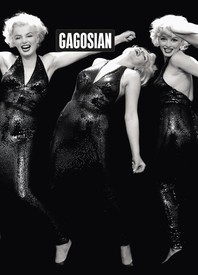
Now available
Gagosian Quarterly Summer 2023
The Summer 2023 issue of Gagosian Quarterly is now available, featuring Richard Avedon’s Marilyn Monroe, actor, New York, May 6, 1957 on its cover.
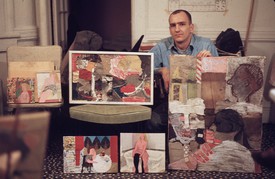
“Tight and Small and Figurative”: Tom Wesselmann’s Early Collages
Susan Davidson, editor of the forthcoming monograph on the Great American Nudes, a series of works by Tom Wesselmann, explores the artist’s early experiments with collage, tracing their development from humble beginnings to the iconic series of paintings.
In Conversation
Susan Davidson and Jeffrey Sturges
On the occasion of the exhibition Tom Wesselmann: Intimate Spaces at Gagosian, Beverly Hills, Susan Davidson sat down with Jeffrey Sturges to discuss the artist’s key works in his Great American Nudes (1961–73) and subsequent series.
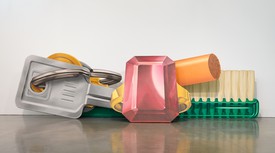
Richard Phillips on Tom Wesselmann
Tom Wesselmann: Standing Still Lifes closes this week at Gagosian New York. In this text, Richard Phillips speaks with Jason Ysenburg about the impact of the exhibition. A video about the exhibition and the artist’s studio practice accompanies the text.
Tom Wesselmann: In the Studio
Join us for a look at Tom Wesselmann’s New York studio in this behind-the-scenes video. Featuring archival footage of Wesselmann at work, as well as new interviews with his family, studio team, and friends, the film documents the creative process behind his large-scale works, from early still lifes to later abstractions.
